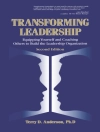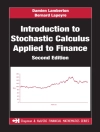An incisive overview of the macroeconomics of financial crises—essential reading for students and policy experts alike
With alarming frequency, modern economies go through macro-financial crashes that arise from the financial sector and spread to the broader economy, inflicting deep and prolonged recessions. A Crash Course on Crises brings together the latest cutting-edge economic research to identify the seeds of these crashes, reveal their triggers and consequences, and explain what policymakers can do about them.
Each of the book’s ten self-contained chapters introduces readers to a key economic force and provides case studies that illustrate how that force was dominant. Markus Brunnermeier and Ricardo Reis show how the run-up phase of a crisis often occurs in ways that are preventable but that may go unnoticed and discuss how debt contracts, banks, and a search for safety can act as triggers and amplifiers that drive the economy to crash. Brunnermeier and Reis then explain how monetary, fiscal, and exchange-rate policies can respond to crises and prevent them from becoming persistent.
With case studies ranging from Chile in the 1970s to the COVID-19 pandemic, A Crash Course on Crises synthesizes a vast literature into ten simple, accessible ideas and illuminates these concepts using novel diagrams and a clear analytical framework.
Circa l’autore
Markus K. Brunnermeier is the Edwards S. Sanford Professor of Economics at Princeton University. His books include The Resilient Society and The Euro and the Battle of Ideas (Princeton). Ricardo Reis is the A. W. Phillips Professor of Economics at the London School of Economics. He is a winner of the 2021 Yrjö Jahnsson Award and advises many central banks.












